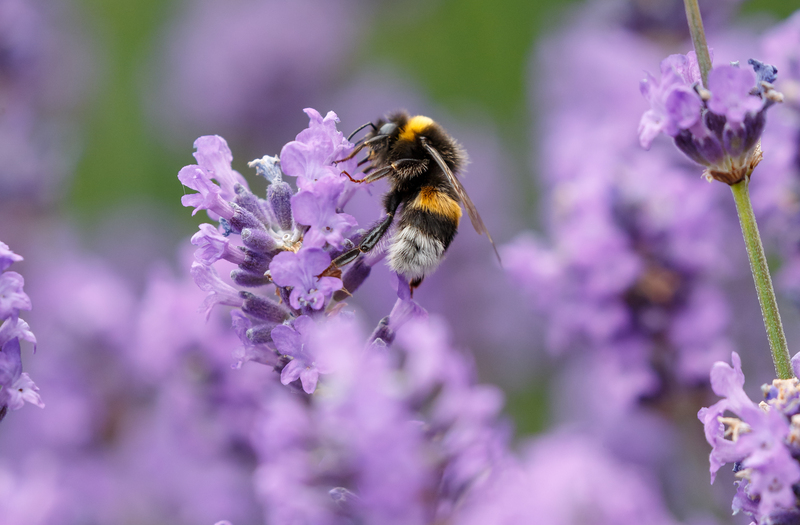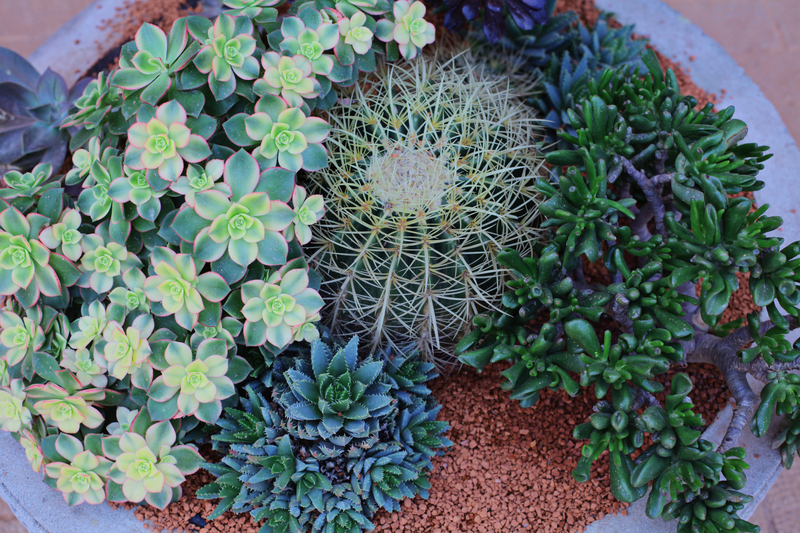Cultivate a Lush Garden with 3 Ingenious Weed Control Tips
Posted on 28/05/2025
Cultivate a Lush Garden with 3 Ingenious Weed Control Tips
Are you dreaming of a vibrant, weed-free garden that flourishes all season long? Weeds can steal nutrients, water, and sunlight from your favorite plants, making garden maintenance a real headache. Fortunately, there are clever ways to control weeds and nurture a lush, beautiful landscape. In this comprehensive guide, we'll explore three ingenious weed control tips that are proven to help both beginner and seasoned gardeners. By leveraging these expert strategies, you'll learn how to prevent weeds from taking root and discover how to maintain a lush garden with ease.
Why Is Effective Weed Control Essential for a Lush Garden?
Weeds are opportunistic plants that can rapidly overtake flowerbeds, vegetable patches, and landscaping beds. Without proper intervention, weeds:
- Compete with desired plants for vital resources like sunlight, water, and nutrients
- Encourage pests and diseases to thrive
- Reduce the visual appeal of your garden
- Can be difficult and time-consuming to remove once established
Comprehensive weed control is key to garden success. When you minimize weeds, your plants thrive, resulting in a richer harvest, healthier flowers, and an overall more inviting outdoor space.

3 Ingenious Weed Control Tips for a Healthier Garden
Eager to learn how to cultivate a weed-free garden? Below, we detail three innovative yet practical weed-suppression strategies that will help you maintain a healthy, lush garden with minimal effort.
1. Smart Mulching Techniques: Nature's Weed Barrier
Mulching is one of the most powerful and sustainable methods to suppress weeds while supporting plant health. Here's why mulching works superbly:
- Blocks sunlight: Most weed seeds require sunlight to germinate and grow. By applying a thick layer of mulch, you can effectively smother weed seeds and prevent their emergence.
- Maintains soil moisture: Mulch helps the soil retain moisture, which not only supports your desirable plants but also makes it tougher for many weed species that prefer dry, exposed soil.
- Improves soil structure: Organic mulch decomposes over time, enriching the soil and making it harder for weeds to compete.
How to Mulch Effectively for Ultimate Weed Control
- Choose the right material: Organic options like shredded bark, compost, straw (weed-free), and leaf mold work well. For pathways, consider gravel or landscape fabric as additional barriers.
- Prepare the area: Remove visible weeds before mulching. This will reduce the chance of weeds resurging through the new layer.
- Apply enough mulch: For effective weed control, maintain a depth of 2-4 inches. Avoid piling mulch directly against plant stems or tree trunks to prevent rot.
- Replenish as needed: Over time, mulch breaks down and thins out. Refresh your mulch annually to ensure continued weed suppression and soil health.
Mulching is a time-tested, low-maintenance weed control hack that every gardener should master!
2. Harness Smother Planting and Dense Spacing
Did you know that your planting arrangements can drastically affect weed invasion? Strategic, dense planting (sometimes called "smother planting") makes it more difficult for weed seeds to find space to germinate and grow.
- Creates competition: By planting closely, your chosen plants shade the soil, making it harder for weed seedlings to access light and air.
- Reduces bare patches: Weeds thrive in exposed soil. Filling your beds with ground covers, sprawling flowers, or leafy vegetables naturally covers the ground and blocks weed growth.
Tips for Effective Smother Planting
- Plan your layout: Before planting, group varieties that naturally spread or pair tall and low-growing species to maximize soil coverage.
- Utilize ground covers: Hardy ground covers like creeping thyme, ajuga, or sweet woodruff can form a living mulch that crushes weed growth.
- Interplant vegetables and herbs: In vegetable gardens, interplant fast-growing crops (like radishes or lettuce) between slower-developing ones to keep soil covered at every growth stage.
Dense planting not only boosts weed control but also enhances your garden's visual appeal with lush, overflowing borders!
3. Employ Strategic Hand-Pulling and Spot Treatments
Despite your best efforts, occasional weeds will still appear--especially after windstorms or heavy rains. Strategic and mindful removal at the right time makes all the difference for long-term weed suppression:
- Hand-pulling: Pulling weeds by hand is exceptionally effective when soil is moist, and weeds are young. This ensures you remove the entire root system and prevent regrowth.
- Hoeing and cultivating: A sharp hoe or cultivator can quickly slice off young weeds at soil level. Focus on shallow cultivation to avoid bringing more weed seeds to the surface.
- Organic spot treatments: Use targeted, organic weed killers like vinegar-based sprays or boiling water on persistent weeds. Always apply carefully to avoid harming surrounding plants.
Timing and Technique Matter
- Inspect your garden regularly for small weed outbreaks--the sooner you act, the easier removal will be.
- Pull or slice weeds before they set seed. This stops new weeds from spreading throughout your garden.
- Dispose of weed debris properly, especially invasive types, to prevent them from re-rooting or spreading seeds.
By staying vigilant and responding promptly, you'll keep stubborn weeds from gaining a foothold and maintain a thriving, healthy garden environment.
Weed Control Tips for Organic and Eco-Friendly Gardening
Many gardeners want to cultivate a lush garden without harmful chemicals. Eco-friendly weed control practices not only protect your family, pets, and local pollinators, but also support soil health and garden biodiversity. Alongside the above techniques, try these additional organic weed management strategies:
- Solarization: Cover bare soil with clear plastic for several weeks in hot weather to kill weed seeds using the sun's heat.
- Corn gluten meal: This natural by-product of corn milling can help prevent annual weed seeds from sprouting when used as a pre-emergent.
- Flame weeding: Specialized flame tools quickly scorch weeds in pathways and driveways (use with caution around flammable materials).
For long-term garden health, avoid synthetic herbicides whenever possible and focus on building healthy soil through composting and crop rotation.
Frequently Asked Questions about Cultivating a Weed-Free, Lush Garden
-
What is the most effective way to permanently get rid of weeds?
The best strategy is integrated weed management, which combines mulching, dense planting, regular hand-weeding, and soil improvement. Persistent monitoring and quick removal prevent weeds from going to seed and spreading. -
Can I use landscape fabric for weed control?
Yes, landscape fabric is suitable under paths and in perennial beds, but avoid using it in annual gardens where you till frequently. Always cover landscape fabric with mulch for best results. -
What is the safest weed killer for pets and wildlife?
Organic solutions such as vinegar sprays, boiling water, or manual removal pose no chemical risk to pets, children, or pollinators. -
How often should I weed my garden?
Inspect your garden at least once a week during the peak growing season. Frequent weeding helps keep problems small and prevents the spread of new weed seeds.

Additional Tips to Foster a Thriving, Weed-Free Garden
- Start clean: Always remove weeds from beds before planting new flowers, shrubs, or vegetables.
- Water wisely: Drip irrigation or soaker hoses target the root zone of crops, leaving weeds starved for water.
- Encourage healthy soil: Enrich soil with compost or organic matter yearly for strong, resilient plants that outcompete weeds.
- Rotate crops: In vegetable gardens, change plant locations each year to break weed and disease cycles.
Conclusion: Unlock a Weed-Free, Lush Garden for All Seasons
By following these three ingenious weed control tips--mulching, dense planting, and timely removal--you'll unlock the secret to a lush and thriving garden. Reduce time spent on weeding, promote soil health, and enjoy more bountiful blooms and harvests every season. Whether you're growing ornamentals or vegetables, these strategies ensure your garden remains vibrant and weed-free year-round.
Remember: Consistency is key! A little effort each week will reward you with healthy, happy plants and a landscape you'll love to share. Embrace these smart weed management practices and watch your lush, weed-free garden flourish with beauty and abundance.



